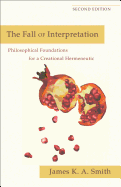Mea culpa. How else could I respond to Crystal Downing’s gracious, rightly-critical engagement with The Fall of Interpretation? In what was a moment of (rather Caputo-an?[1]) flourish, I seem to have blamed an entire discipline for mis-readings of Derrida.  And this despite the fact that, as Downing rightly points out, there are plenty of professors of philosophy and religious studies who are equally to blame, and plenty of professors of English who offered astute readings of Derrida.
And this despite the fact that, as Downing rightly points out, there are plenty of professors of philosophy and religious studies who are equally to blame, and plenty of professors of English who offered astute readings of Derrida.
So, again, mea culpa. She’s exactly right. As I argued in Jacques Derrida: Live Theory, I do think the initial North American reception of Derrida was skewed in weird ways because he arrived through comparative literature rather than philosophy—so the significance of his specifically phenomenological heritage was often missed (e.g., by Spivak in her influential introduction to the English translation of Of Grammatology).
But, of course, an entire discipline can’t be blamed for misreadings. In a mild defense, I might point out that I only claimed this “received Derrida” was “mediated by American English deparments,” not all American English departments nor everyone in those departments. Downing points to Miller as a contrary example. I might add Geoffrey Bennington as another. And the list could certainly go on. So I welcome the correction. The haunting is now mutual.
Downing is also right that, like a coin, there are always two sides to Derrida. While the new chapter 7 focuses on a “policing” Derrida, this should not be unhooked from the “playful” Derrida.[2] And even within my “ecclesial” hermeneutic, these two should be held together: the community of interpretation establishes parameters to be sure; but within those parameters—even when they’re eccelesiastical—there is interpretive play. It’s in that bound space of play that allegorical readings of the fathers are operative. And it’s in the same space in which preaching happens. We need not flip the coin and choose; we ought to keep it spinning, like a very serious game.